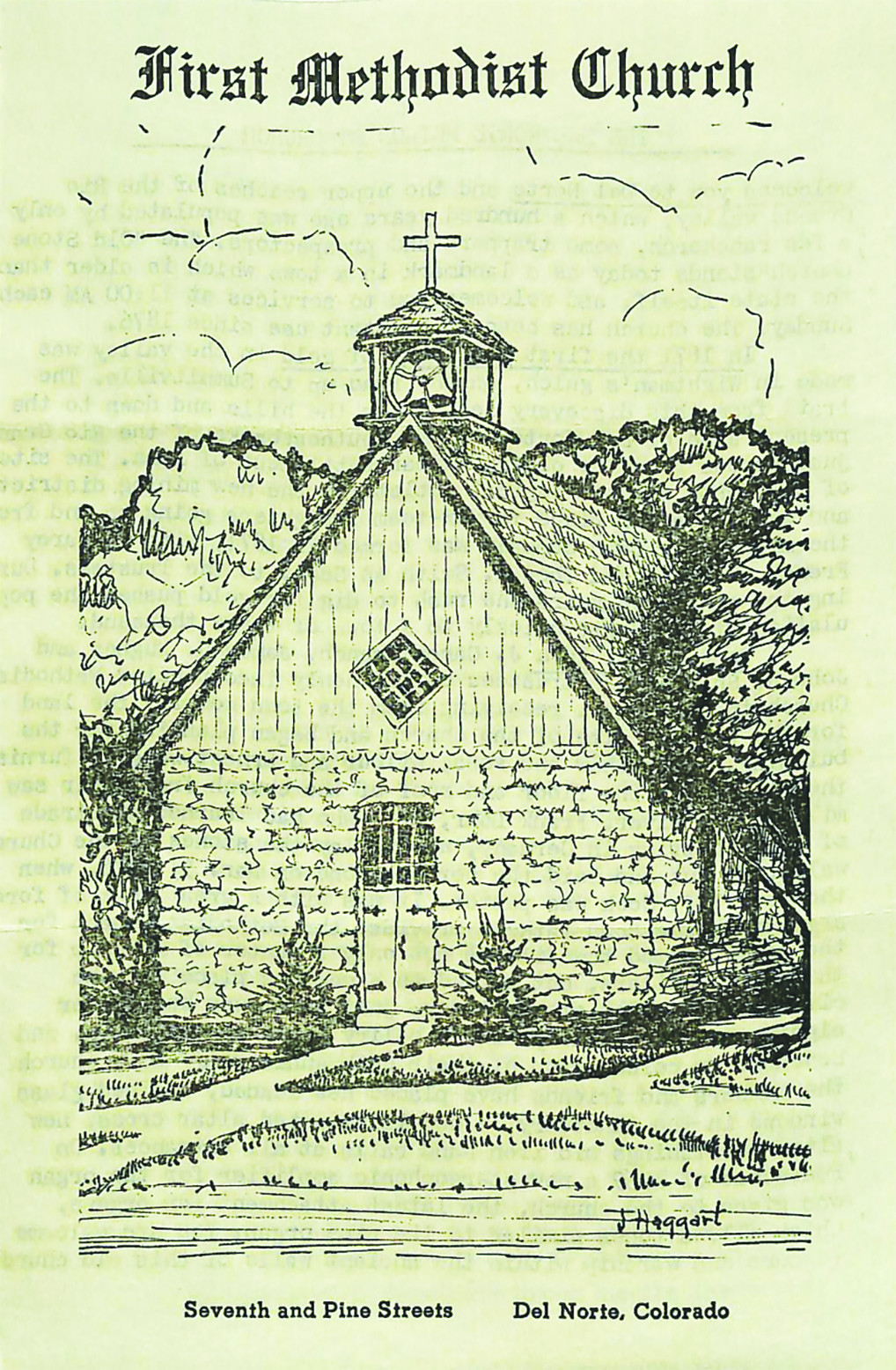First Methodist Church of Del Norte: Historical Women’s Suffrage Site

Women’s Equality Day, celebrated Wednesday, Aug. 26, commemorates the 100th anniversary of the passage of the U.S. Constitution’s 19th Amendment, granting women the right to vote. In honor of this momentous occasion, the Colorado Historical Foundation has been curating research identifying historical sites across Colorado where suffragists laid the groundwork in Colorado’s statewide movement toward equality.
National suffrage leader Susan B. Anthony toured the American West more than once to spread the word of women’s suffrage. As part of Colorado’s first campaign attempt to pass equal suffrage by referendum in 1877, a year after statehood, Anthony toured Colorado on a highly ambitious itinerary in tangent with national and local suffragists. On one of her stops, she spoke within the walls of the First Methodist Church of Del Norte located at 520 7th Street “in moonlight” before its roof was even completed.
Colorado played an important role in the over seventy-year struggle to secure enfranchisement for women in the United States. In 1893, it became the first state providing women the right to vote by a popular referendum, the result of over 20 years of Colorado women advocating for themselves with the help of national leaders. Once Colorado’s women obtained the vote, the state was held up as an example for the rest of the nation, with many of the state’s women going on to aid the national effort.
“Seeing and experiencing the actual places where these important events happened can heighten a person’s sense of empowerment through connection with their history,” says Cathy Rosset, the Foundation’s executive director, noting that a building’s significance should not be celebrated only for its architectural merit, but for what transpired on its steps or within its walls. “Though progress is being made, unfortunately the practice of historic preservation is woefully behind on honoring sites where traditionally overlooked or marginalized people’s stories took place – including those of women.”
The Foundation is building a database of known sites statewide which remain intact from the times in which key suffrage events took place. The data will be used to identify needs for further research, nominating sites for state or national historic designation, as well as expanding existing historical designation records to include the women’s suffrage elements. The Foundation hopes the research will also spark more accessible ways for increasing the public’s knowledge and identification with women’s history throughout Colorado. For example, the 19th Amendment, though a huge step forward for women, did not mean equal voting rights for all. Notably, Black women still faced barriers to voting after passage due to discriminatory practices including poll taxes and literary tests until the passage of the Civil Rights Act in 1965. In addition, American Indian women did not receive voting rights until 1924, and Asian-American women were not fully enfranchised until 1952.
Other Colorado suffrage sites include churches, public buildings, parks and homes of prominent suffragists, where forums, key speeches and mobilizing meetings took place. Churches and opera houses played host to suffrage leader Carrie Chapman Catt, on her 1893 campaign through Colorado advocating for women’s suffrage, including Salida’s First Baptist Church and the Wheeler Opera House in Aspen. Black women organizing in support of suffrage congregated at Pueblo’s Eighth Street Baptist Church during the 1893 campaign.
The Foundation’s suffrage site project is one of a series aimed at broadening awareness of history associated with marginalized people. The Foundation is also cataloging Colorado sites advertised as welcoming to Black people traveling during the Jim Crow segregation era (1930s-1960s), and sites associated with the LGBTQ movement. All three projects are funded in part by the History Colorado State Historical Fund.
The Foundation is conducting its work on women’s suffrage sites in partnership with several historians and organizations such as the Colorado Center for Women’s History, the Colorado Springs Pioneer Museum, Women Suffrage Centennial Southern Colorado, and local historical societies.



